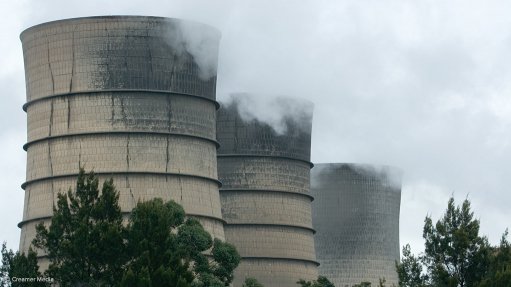
Photo by: Duane Daws
The South African Independent Power Producer Association (SAIPPA) has welcomed the release by the Department of Energy (DoE) of the coal baseload tender, but has described the 1 600 MW allocation as “insufficient” and has argued instead for the full 2 500 MW outlined in a 2012 Ministerial determination to be procured “in the quickest possible time”.
The association argues that, in the current context of energy shortages, the DoE plan to have several bidding rounds to procure the 2 500 MW allocation may “prolong the energy shortages”.
The request for proposals (RFP) issued in December indicates that the DoE is seeking to procure a total of 1 600 MW – 1 000 MW domestically and 600 MW from the rest of the region – during the first phase of the programme, with subsequent yearly competitive bidding rounds to follow.
A deadline of June 8 has been set for bid submissions and independent power producers (IPPs) have been requested to notify the department of their intention to bid by May 11.
Only projects smaller than 600 MW and which can be operational by 2021 will be considered, but an incentive has been built into the tender for those projects that are able to beat that deadline.
The RFP also sets a price cap of 82c/kWh for the first bid window and stipulates that South Africans own 51% of the project company set up to develop the power stations, including 30% black economic–empowerment participation.
SAIPPA says it has noted the 600 MW cap, but would prefer that the DoE did not exclude larger projects, which may offer a compelling case. It is more concerned, though, about the lack of progress in finalising the supportive transmission and water infrastructure in coal-rich territories, as this could undermine the implementation of coal-fired power projects.
It also believes that competitive and bid-ready domestic projects should not be foregone in favour of meeting the 600 MW “predetermined” crossborder allocation.
Also of concern is the tariff formulation in the RFP, with SAIPPA warning that the proposed escalation formula fails to mirror the actual cost increases IPPs would need to deal with.
“A contract over a 30-year period, plus a three-and-a-half-year construction period, cannot financially sustain itself with a major difference between income escalation and expense escalation,” it argues, noting that South African projects have been prone to labour increases that are not aligned to the inflation rate.
“For IPP’s to carry this risk over a 30-plus-year period would be unsustainable.”
Also questioned is the stipulation that Eskom be the buyer of a minimum of 75% of the power produced, and that any other buyer would need to contract for a minimum of 15% of the balance. “Surely if energy is generated for South Africa no such limit is needed.”
However, SAIPPA still welcome the publication of the RFP, which has been eagerly awaited ever since the determination was published in December 2012.
The DoE did not immediately respond to Engineering News Online’s request for comment.